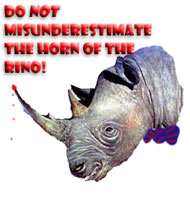October 13, 2004
Uh, Spirit? A Little Help Here?
I've got to go off and run my Church group meeting tonight. I must say that I'm not really in the mood, as I'm rather tired. (I think I'm feeling run down mostly because I know that when I get home I'm going to have to face both the debate AND the Game.) Hopefully, I'll get a bit of a bounce before I have to be "on" for my associates.
As part of this group and on a more general basis, I've been noodling a goodish bit lately about the Institutional Church, the formal structure of our religion. The Episcopal Church has three pillars of faith: Scripture, tradition and reason. In an ideal world, all three of these pillars have equal influence. But of course, this isn't an ideal world.
One curious thing I've noticed from talking to a great many people is the way in which they apply this formula to their own relationship with the Church. For example, I know a goodish number of ex-Catholics who have become Episcopalians. These folks tend to lean most heavily on reason and indeed, can be downright hostile to the notion of tradition and even Scripture as guiding principles of Faith. It's well known that converts often make the most fervent zealots. In this case, I think, the natural inclination (for whatever psychological reason) is to embrace that aspect of the Episcopal Faith that is least like their former Romanism.
I tend to go the other direction, being both a Cradle Episcopalian and a Tory. I love tradition and am a firm believer in the accumulation of wisdom across the generations. I also love formalism, ceremony and institutional hierarchy. To me, Reason is not a means by which I can thumb my nose at those aspects of Institutional Faith that I don't agree with. Rather, it is a tool by which I understand why I'm asked to accept the things that are called for by the other pillars of my Faith and by the Church itself.
The greatest strength and the greatest weakness of the Episcopal Church is that it encompasses both of these points of view, along with myriad other combinations. It's true that this "Big Tent" philosophy keeps the Church from blowing to smithereens when it comes up against some big social or spiritual issue. At the same time, it strikes me that the Collective Faith in such a context can become so diluted as to be rendered practically meaningless. (I'm sure you've heard the joke about the Episcopal Church that was so liberal it had six Commandments and four Suggestions.)
Rather frustrating. What to do? Eh. Have a drink. After all, why do you think we're called "Whiskey-palians"?
Posted by Robert at October 13, 2004 04:51 PM | TrackBack



